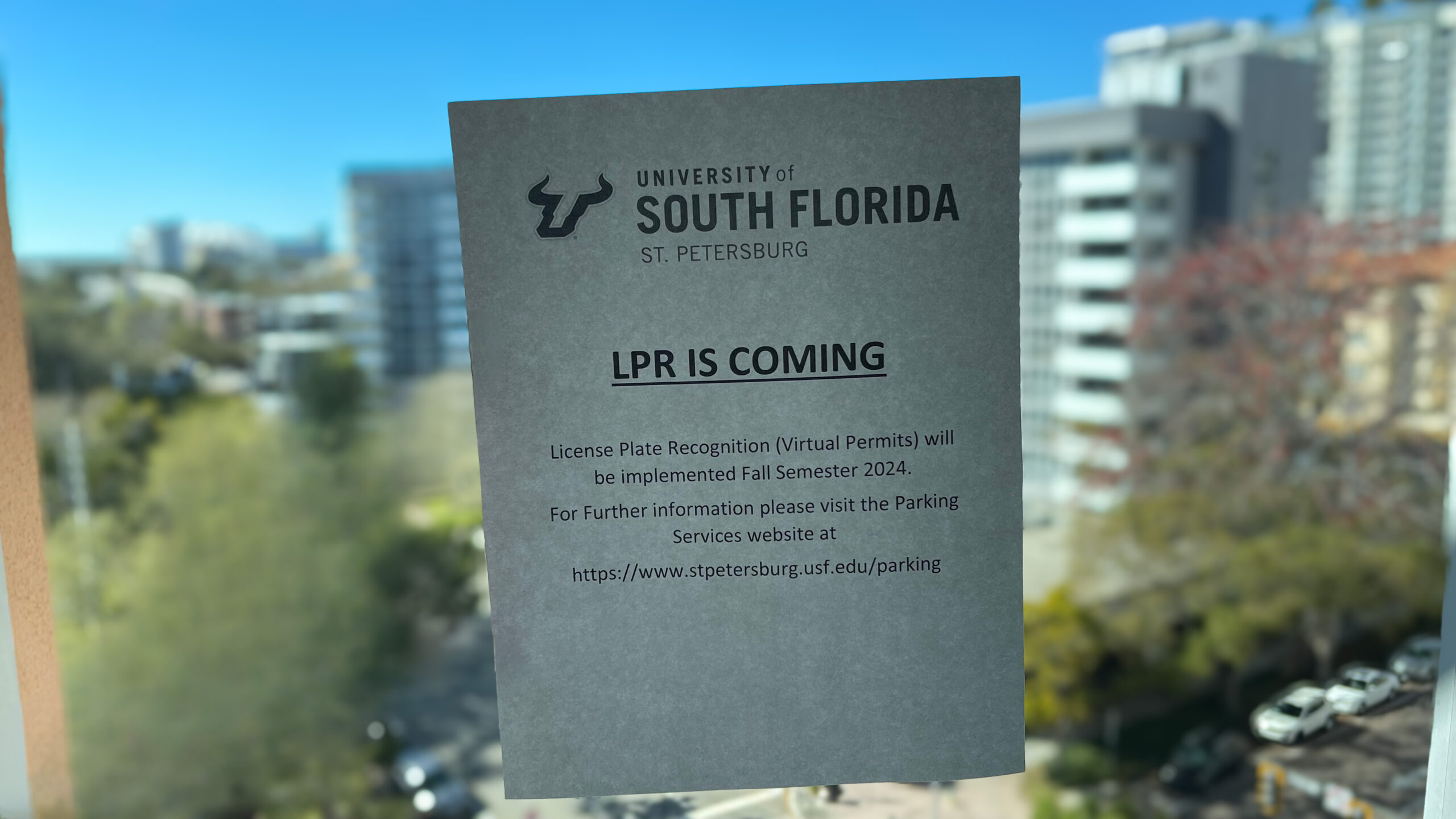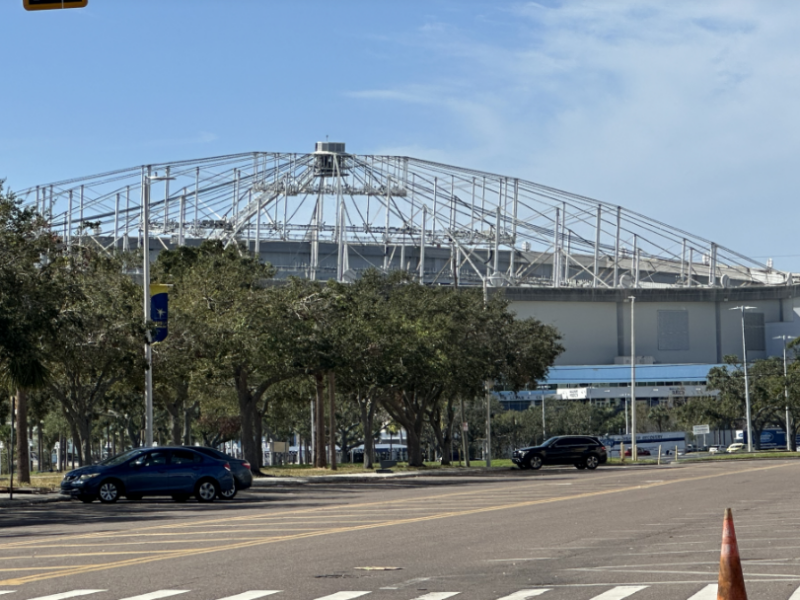Photo by Riley Benson | The Crow’s Nest
By Riley Benson
A major parking revamp is coming to the University of South Florida St. Petersburg campus, in the form of changing the way students, faculty, and staff park on campus.
Parking services will be moving away from using stickers that students currently use and moving towards a license plate recognition (LPR) system. The LPR will be similar to what’s already being used at the USF Tampa campus, where students register their license plate number online under their choice of parking permit
Last year, the USF Sarasota-Manatee campus began using LPR and merged with the Tampa campus’ database, which first began using LPR in 2021.
USF St. Petersburg will mirror those efforts, and subsequently, all three USF campuses will have a shared database. This new shared database aims to decrease tickets and fines for those who commute across the campuses.
USF St. Petersburg will also be switching to the same classification system that’s currently in use in Tampa.
Instead of having Green, Gold, Red, and Orange, it’ll change to GZ, E, S and R. Parking services plan to change the signage in the parking lots and in the parking garage, once the spring semester concludes.
In order to keep track of all parking permit holders, Parking Services will also be introducing an LPR vehicle.
“The [LPR] vehicle is going to drive through all the lots, and it has scanners up on the roof. It scans all the license plates in there, the license plates will be linked to your permit,” Randy Pogue, Parking and Transportation manager at USF St. Petersburg, said. “Whatever license plate you have linked in our system, when our car goes through, it’ll detect whether it has permit.”
The LPR vehicle will also detect if the user is parked in the right area. Specific lots are only for certain permits, and the vehicle will be able to detect if an unauthorized student or staff is parked there.
The LPR will also be able to recognize if there’s more than one car on a campus, that’s linked to the same permit.
Up to three vehicles can also be added to one parking pass, the only restriction is that only one of the vehicles on the pass can be on a singular campus at a time. If multiple vehicles need to be on campus at the same time, users will have to purchase another parking pass.
At the moment, there are no plans to change the permit pricing immediately, but it will most likely happen in the future.
“Right now, the Tampa rates are slightly higher, but we have not put anything forward that would affect us in the next year. But at the end of the day, to limit gaming things, we are going to have to be level in terms of though in terms of the price,” said Nicholas Setteducato, interim regional vice chancellor of Administration and Finance at St. Petersburg campus, during the Petersburg campus town hall on Feb. 14.
“It’s really an unfair, relative to the parking, to have separate rates. There isn’t a lot of difference between them in some of the categories, but we do need to look over it. And honestly if there’s a good reason why they should stay different, that may be an outcome to carry,” Setteducato said.
This new system will be soft-launching in July, with it officially rolling out in the fall 2024 semester. Parking Services will be sending out more details throughout the semester.



